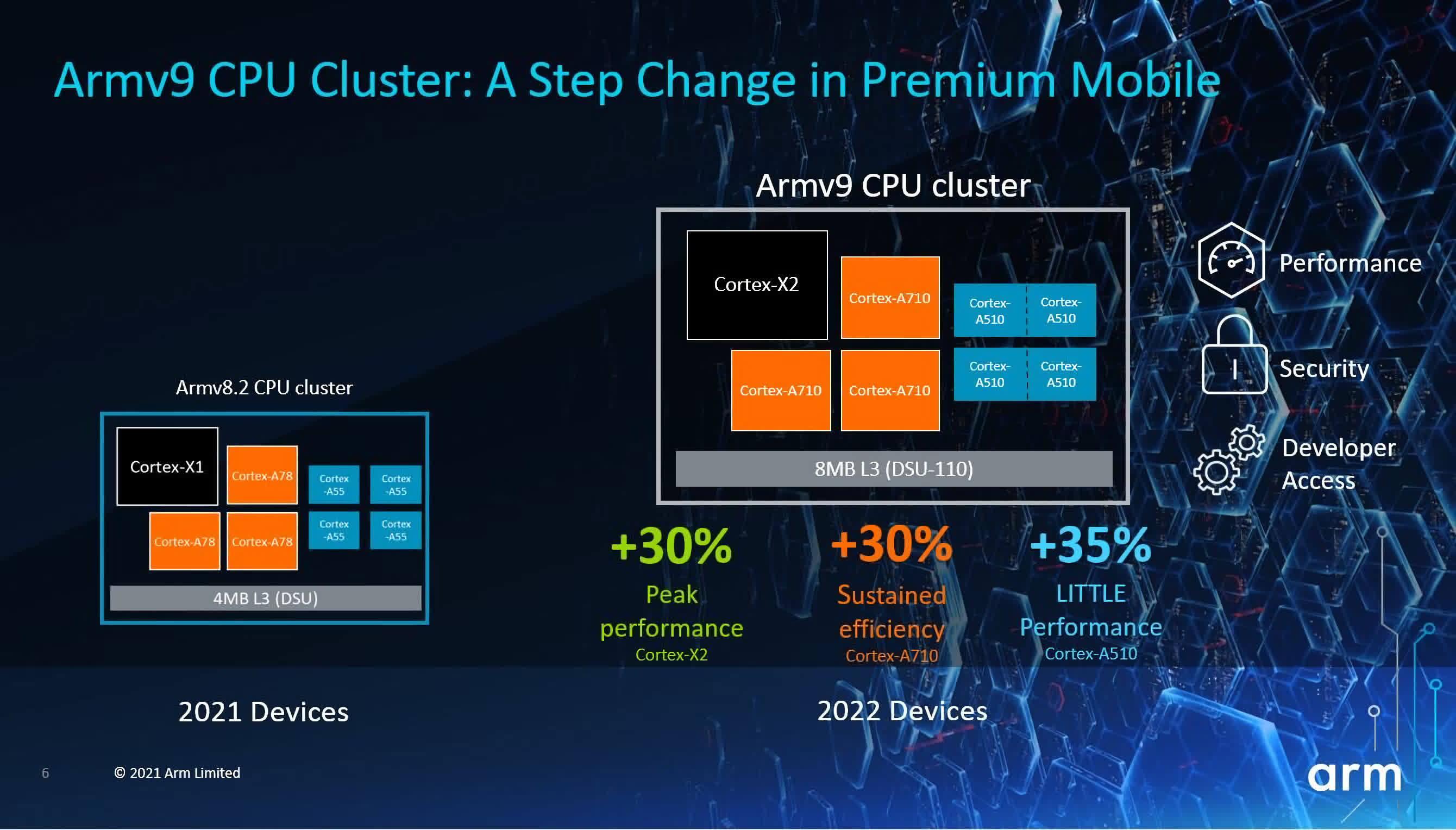In brief: Arm already dominates mobile, but now it's gearing up for a world where everything from small embedded devices to servers and supercomputers can be built using its scalable architecture. For consumers, Armv9 means we'll see faster smartwatches, phones, tablets, laptops, and even desktops built to compete with x86 systems, fueled by Apple's transition to custom silicon.

Arm announced its next generation processor architecture -- Armv9 -- earlier this year marking the first true generational upgrade since 2011's Armv8. The company hopes this will accelerate the shift away from x86 by allowing chip makers to utilize technologies that are at the heart of the world's fastest supercomputers and deliver better machine learning and digital signal processing capabilities.
For the enterprise infrastructure, those capabilities are encompassed in the Neoverse V1 and Neoverse N2 CPU IPs, building on the strong foundation of the Neoverse N1 platform that Ampere and other companies are using to compete with Intel and AMD in the data center.
At first glance, it may look as though Armv9 is all about high performance computing scenarios, but it does have some serious implications in the consumer space, too.
This is where the new Cortex-X2, Cortex-A710, and Cortex-A510 CPU designs come in. As you may have guessed, these are the successors of last year's Cortex-X1, Cortex-A78, and Cortex-A55. All three add support for SVE2 vector extensions and come with much-needed IPC and efficiency improvements.

Arm says the Cortex-X2 is 30 percent faster than its predecessor, which is used in custom designs in the Qualcomm Snapdragon 888 and Samsung Exynos 2100 chipsets.
The Cortex-A710 core is 10 percent faster and 30 percent more energy efficient than the Cortex-A78. The new "LITTLE" Cortex-A510 core is 35 percent faster than the Cortex-A55, while also delivering three times the performance in machine learning applications.
The company also revealed four new Mali GPUs that come with similar improvements over their predecessors. At the high end, there's the Mali-G710 with a 20 percent performance boost, but the most impressive of the bunch is actually the Mali-G510 that will double the performance you can get in mid-range smartphones and smart TVs.
Armv9 definitely sounds impressive, but don't expect to see these designs show up this year. Chip makers will most likely announce their custom designs in the coming weeks and months with a launch window set for the first half of 2022. There's a lot of potential for new and exciting Chrome OS and Windows 10 on Arm hardware, and everything down to the lowly smartwatch will likely benefit from the new architecture.
https://www.techspot.com/news/89817-arm-first-armv9-cpu-gpu-designs-offer-generational.html